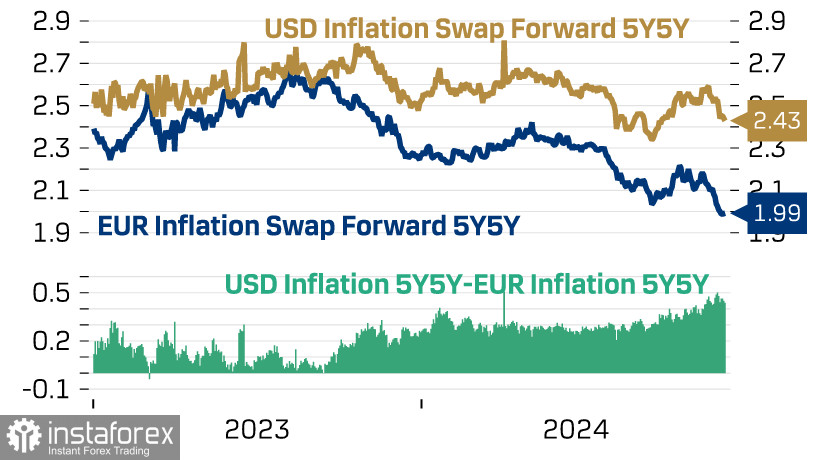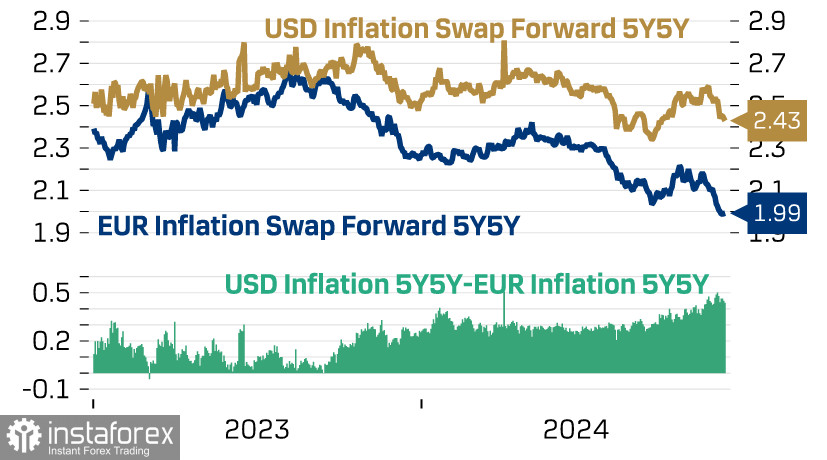Inflationary pressure in the Eurozone remains stable. In November, the Consumer Price Index stood at 2.3% year-on-year, and the core index at 2.8%, both in line with forecasts but higher than in October.
The market reacted calmly to the rise in inflation, as part of this increase was attributed to base effects and does not indicate a return of inflationary momentum. At the same time, the economy shows clear signs of weakness, with the PMI for manufacturing in November at 45.2, significantly below the expansion threshold.
These indicators are important in shaping the European Central Bank's strategy moving forward. Inflation has not yet returned to the target range, so interest rates must remain restrictive. However, the weak economic conditions call for easing financial conditions. The ECB faces two opposing tasks and must strike the right balance between them.
The spread between medium-term inflation swaps in euros and dollars continues to widen. As long as this trend persists, the euro will remain under pressure.

The ECB and the Federal Reserve will make interest rate decisions in the coming weeks. Market expectations for both events have been relatively stable recently. The ECB is expected to lower rates by 25 basis points, with a smaller likelihood of a 50 basis point cut. In contrast, the Fed's forecast suggests a similar 25 basis point cut with a slight chance of no reduction. As long as this imbalance exists, the euro will likely remain under pressure. Friday's U.S. jobs report is expected to provide additional clarity. Based on this data, the market will adjust its Fed rate forecast, likely resulting in significant movements in the EUR/USD pair.
The latest CFTC report revealed that speculative short positions on the euro continue to grow slowly. The estimated price shows no signs of reversal.

Weeks ago, we noted that despite being oversold, the fundamental reasons for the EUR/USD decline remain intact. The rebound from the 1.0334 low is technical, and no new factors support a bullish reversal. The euro may still rise slightly, with the nearest resistance levels at 1.0602 and 1.0660, but reaching these levels should not be seen as a sign of accelerating growth if breached. Instead, they should be viewed as opportunities for another wave of selling once the correction ends. The 1.0334 low appears strong, and we consider a break below this level unlikely before the end of the year.





















